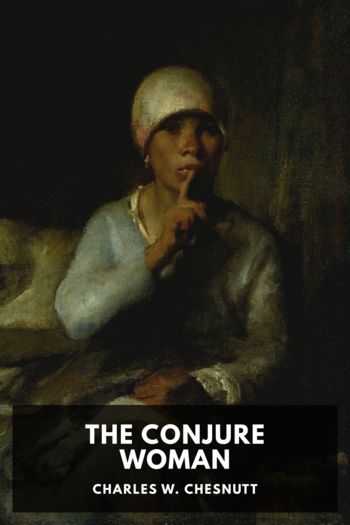The Lives of the Caesars, Suetonius [best book club books for discussion .TXT] 📗

- Author: Suetonius
Book online «The Lives of the Caesars, Suetonius [best book club books for discussion .TXT] 📗». Author Suetonius
He abolished foreign cults, especially the Egyptian and the Jewish rites, compelling all who were addicted to such superstitions to burn their religious vestments and all their paraphernalia. Those of the Jews who were of military age he assigned to provinces of less healthy climate, ostensibly to serve in the army; the others of that same race or of similar beliefs he banished from the city, on pain of slavery for life if they did not obey. He banished the astrologers as well, but pardoned such as begged for indulgence and promised to give up their art.
He gave special attention to securing safety from prowling brigands and lawless outbreaks. He stationed garrisons of soldiers nearer together than before throughout Italy, while at Rome he established a camp for the barracks of the praetorian cohorts, which before that time had been quartered in isolated groups in diverse lodging houses.
He took great pains to prevent outbreaks of the populace and punished such as occurred with the utmost severity. When a quarrel in the theatre ended in bloodshed, he banished the leaders of the factions,300 as well as the actors who were the cause of the dissension; and no entreaties of the people could ever induce him to recall them. When the populace of Pollentia would not allow the body of a chief-centurion to be taken from the forum until their violence had extorted money from his heirs for a gladiatorial show, he dispatched one cohort from the city and another from the kingdom of Cottius, concealing the reason for the move, sent them into the city by different gates, suddenly revealing their arms and sounding their trumpets, and consigned the greater part of the populace and of the decurions301 to imprisonment. He abolished the customary right of asylum302 in all parts of the empire. Because the people of Cyzicus ventured to commit acts of special lawlessness against Roman citizens, he took from them the freedom which they had earned in the war with Mithridates.
He undertook no campaign after his accession, but quelled outbreaks of the enemy through his generals; and even this he did only reluctantly and of necessity. Such kings as were disaffected and objects of his suspicion he held in check rather by threats and remonstrances than by force; some he lured to Rome by flattering promises and detained there, such as Marobodus the German, Rhascuporis the Thracian, and Archelaus of Cappadocia, whose realm he also reduced to the form of a province.
For two whole years after becoming emperor he did not set foot outside the gates; after that he went nowhere except to the neighbouring towns, at farthest to Antium, and even that very seldom and for a few days at a time. Yet he often gave out that he would revisit the provinces too and the armies, and nearly every year he made preparations for a journey by chartering carriages and arranging for supplies in the free towns and colonies. Finally he allowed vows to be put up for his voyage and return, so that at last everybody jokingly gave him the name of Callippides, who was proverbial among the Greeks for running without getting ahead a cubit’s length.303
But after being bereft of both his sons—Germanicus had died in Syria and Drusus at Rome—he retired to Campania, and almost everyone firmly believed and openly declared that he would never come back, but would soon die there. And both predictions were all but fulfilled; for he did not return again to Rome, and it chanced a few days later that as he was dining near Tarracina in a villa called the Grotto, many huge rocks fell from the ceiling and crushed a number of the guests and servants, while the emperor himself had a narrow escape.
After traversing Campania and dedicating the Capitolium at Capua and a temple to Augustus at Nola, which was the pretext he had given for his journey, he went to Capreae, particularly attracted to that island because it was accessible by only one small beach, being everywhere girt with sheer cliffs of great height and by deep water. But he was at once recalled by the constant entreaties of the people, because of a disaster at Fidenae, where more than twenty thousand spectators had perished through the collapse of the amphitheatre during a gladiatorial show. So he crossed to the mainland and made himself accessible to all, the more willingly because he had given orders on leaving the city that no one was to disturb him, and during the whole trip had repulsed those who tried to approach him.304
Then returning to the island, he utterly neglected the conduct of state affairs, from that time on never filling the vacancies in the decuries305 of the knights, nor changing the tribunes of the soldiers and prefects or the governors of any of his provinces. He left Spain and Syria without consular governors for several years, suffered Armenia to be overrun by the Parthians, Moesia to be laid waste by the Dacians and Sarmatians, and the Gallic provinces by the Germans, to the great dishonour of the empire and no less to its danger.
Moreover, having gained the licence of privacy, and being as it were out of sight of the citizens, he at last gave free rein at once to all the vices which he had for a long time ill concealed; and of these I shall give a detailed account from the beginning. Even at the outset of his military career his excessive love of wine gave him the





Comments (0)